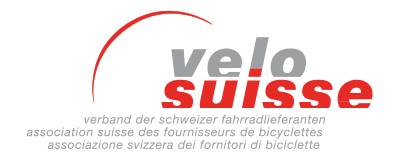Politics / Key figures
- Velosuisse is politically neutral.
- Velosuisse is committed to safe bicycle traffic and a prosperous bicycle trade on an economic, political and social level.
- Velosuisse is as liberal as cycling and actively opposes laws that are detrimental to the attractiveness of cycling or make cycling more complicated and therefore more expensive.
- Velosuisse recommends wearing a helmet to all cyclists in all age groups. However, Velosuisse is against the compulsory wearing of helmets by ASTRA for drivers of slow e-bikes and soon probably all bicycles. For good reasons, which the Article by Felix Schindler from the Infosperber aptly summarized. Also the Accident figures of the Federal Statistical Office bfs do not justify the unilateral measure.
- According to the Federal Office of Sports, cycling (42%) is the second most popular leisure sport in Switzerland after hiking (57%). Pure mountain bikers who in the 2020 survey counted separately, there are about the same number in Helvetia as amateur footballers (about 8%).
- The members of Velosuisse make an active contribution to enable the Swiss Confederation to achieve its ambitious climate targets.
- Velosuisse helps to alleviate the lack of parking spaces in the cities and reduce traffic jams.
- Velosuisse makes an important contribution to public health and, with ongoing innovation in rider protection (helmets, airbag protective vests, child trailers and seats with crumple zones, etc.) and in vehicle technology (improvement of tyre, brake and suspension systems and the introduction of modern assistance systems such as automated shifting and ABS for e-bikes), also in accident prevention.
- According to Microcensus of the bfs were 2021 2.78 billion kilometers were covered on bikes and e-bikes in Switzerland. That's 328.5 km/year per person, roughly the same as in 1994 during the mountain bike boom. In 2015, by the way, it was 296 km/year.
- An enormous potential of new bicycle and e-bike users still lies fallow, as the Study by bicycle components market leader Shimano from the year 2020 shows. In Switzerland, for example, half of all car journeys are less than 5 kilometres long and thus cover a distance in which even the most modern combustion engines cannot run smoothly without additional mixture enrichment. During this warm-up phase, pollutant emissions and consumption are significantly higher than the values specified for advertising these motor vehicles.
- The main reason that discourages people from cycling and e-biking is a dangerous or missing cycling infrastructure, such as an ASTRA study already in 2014 at that time with a fraction of the e-bikers that are on the roads today. It is therefore time to create adequate space for cyclists as well - and not just to focus on the rising number of accidents, which, adjusted by the number of people in kilometres, is actually falling slightly among e-bikers.
- For the 36.8 km daily distance per person, 90 minutes of travel time is spent in Switzerland according to bfs. With a fast e-bike you would cover the distance in one hour.
- An average e-biker (cat. 45 km/h) consumes approx. 1 kw/h of electricity per 100 km at forced speed. That is a gasoline equivalent of 1.2 deciliter. He or she is thus around 42 times more energy-efficient on the road than a small car with one person in it, which consumes 5 litres/100 km.
- The members of Velosuisse are an important economic factor and employer. The entire bicycle industry in Switzerland generates an annual turnover of more than CHF 2 billion.
- During the Corona lockdown in spring 2020, the bicycle repair shops were declared to be systemically relevant and were allowed to remain open in order to ensure the continued health-promoting mobility of the population. During this period, bicycle traffic and distances travelled increased three times the average.
